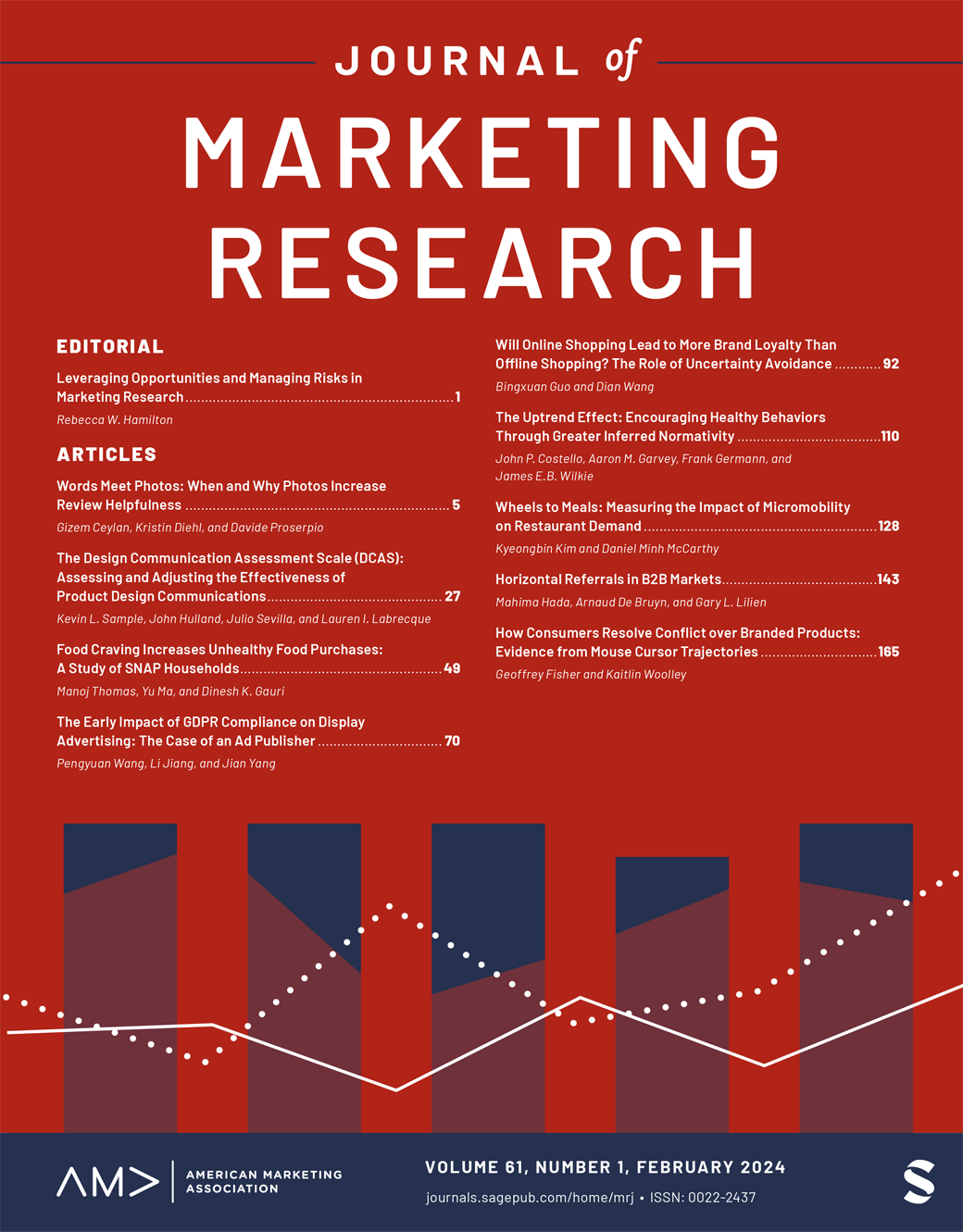《快讯》:分享食物可能适得其反:当孩子的健康选择导致父母为自己做出不健康的选择时
IF 5
1区 管理学
Q1 BUSINESS
引用次数: 1
摘要
许多消费者是照顾者,作为照顾的一部分,经常为他们的家属选择食物。这项研究考察了为孩子选择的食物如何影响父母随后的自我选择的健康。虽然先前的工作主要关注基于自我需求(他人需求)的自我(他人)选择,但作者理论化了自我选择何时以及为何涉及考虑他人需求。包括一项幼儿园实地研究在内的五项研究,测试了为孩子选择健康食品对父母自我选择健康程度的影响,重点关注了预期可能与孩子分享自我选择的作用。如果父母首先为孩子做了一个健康的选择,那么潜在的分享增加了他们随后做出不健康自我选择的可能性。这种影响是由于父母关注孩子是否会吃和享受为他们选择的健康食品而引起的。当父母转而关注未来的育儿问题时,这种影响就会减轻。此外,在为孩子做出(a)不健康或(b)健康但相对受孩子喜爱的最初选择后,这种影响有所缓解。这项研究有助于理解他人的选择如何影响自我的选择,并提供重要的营销和政策启示。本文章由计算机程序翻译,如有差异,请以英文原文为准。
EXPRESS: Sharing Food Can Backfire: When Healthy Choices for Children Lead Parents to Make Unhealthy Choices for Themselves
Many consumers are caregivers and, as part of caregiving, frequently make food choices for their dependents. This research examines how food choices made for children influence the healthiness of parents’ subsequent self-choices. While prior work focuses on choices for the self (others) as based on self-needs (others-needs), the authors theorize regarding when and why self-choices involve consideration of other-needs. Five studies, including a nursery school field study, test the effect of choosing healthy food for a child on the healthiness of parents’ self-choices, focusing on the role of anticipating potentially sharing self-choices with one’s child. Potential sharing increased parents’ likelihood of making an unhealthy subsequent self-choice if they first made a healthy choice for their child. This effect was driven by parents’ present-focused parenting concerns about whether one’s child would eat and enjoy healthy options chosen for them. This effect was mitigated when parents instead had future-focused parenting concerns. Additionally, this effect was mitigated after making an initial choice for the child that was (a) unhealthy or (b) healthy but relatively liked by the child. This research contributes to understanding how choices for others shape choices for the self and offers important marketing and policy implications.
求助全文
通过发布文献求助,成功后即可免费获取论文全文。
去求助
来源期刊

Journal of Marketing Research
BUSINESS-
CiteScore
10.30
自引率
6.60%
发文量
79
期刊介绍:
JMR is written for those academics and practitioners of marketing research who need to be in the forefront of the profession and in possession of the industry"s cutting-edge information. JMR publishes articles representing the entire spectrum of research in marketing. The editorial content is peer-reviewed by an expert panel of leading academics. Articles address the concepts, methods, and applications of marketing research that present new techniques for solving marketing problems; contribute to marketing knowledge based on the use of experimental, descriptive, or analytical techniques; and review and comment on the developments and concepts in related fields that have a bearing on the research industry and its practices.
 求助内容:
求助内容: 应助结果提醒方式:
应助结果提醒方式:


